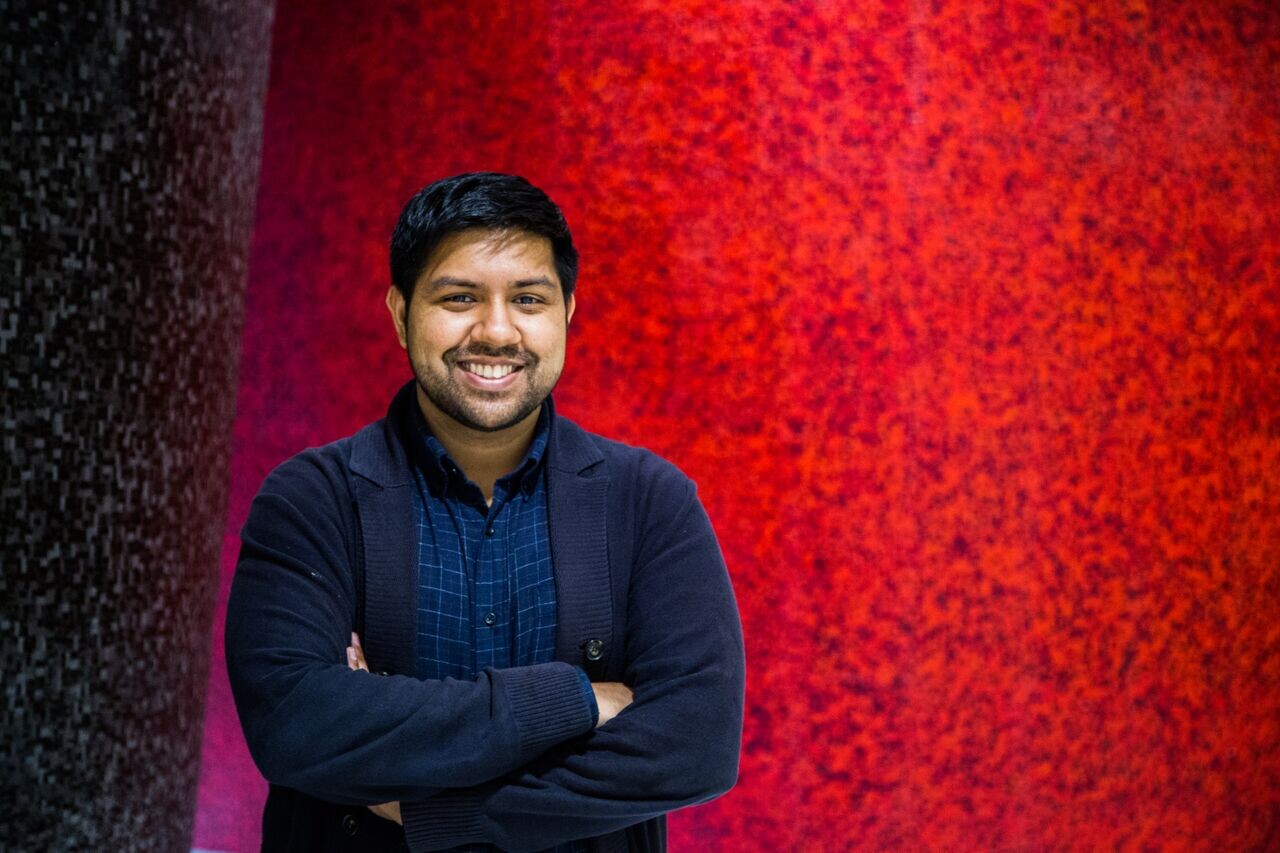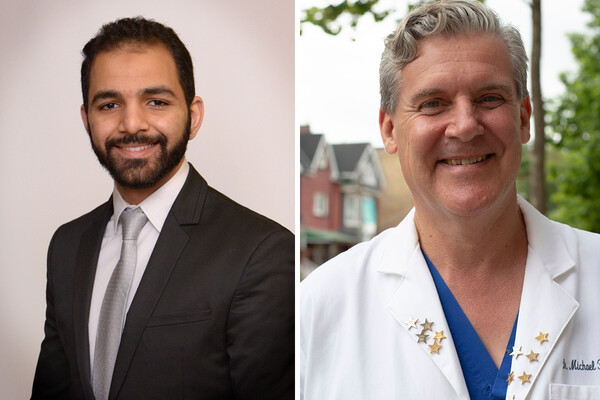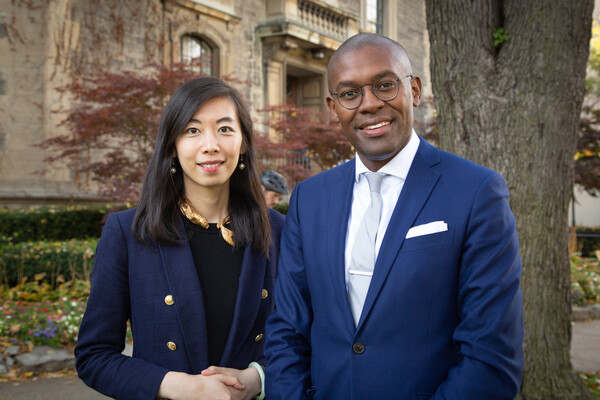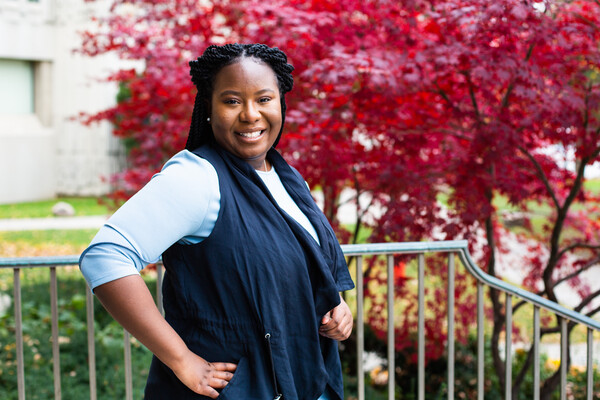Breadcrumbs
- Home
- MD/PhD Program
- News
- Faces of U of T Medicine: Ayan Dey
Faces of U of T Medicine: Ayan Dey


For student Ayan Dey, the desire to merge research and clinical practice made the MD/PhD Program at U of T seem like an obvious choice. Currently in his 7th year of the program, Dey talked to Faculty of Medicine writer Julia Soudat about research interests, future plans and life outside of academia.
What are your research interests and focus of your PhD?
I’m fascinated by the brain’s ability to tolerate and recovery from brain injury. As such, my research interests coming into medical school have centered around acquired brain injury, neuropsychology and neurological rehabilitation. My doctoral research centered around studying the relationship between cognitive impairment and cerebral small vessel disease (colloquially referred to as silent stroke), under the supervision of Dr. Brian Levine and Dr. Sandra Black. Specifically, I sought to investigate, using functional neuroimaging, why some individuals are better able to cope with CSVD-related pathology relative to others.
Why did you choose to do an MD/PhD? What have been some of the most rewarding aspects of the program?
During my undergraduate at McMaster, I became increasingly interested in clinical and translational research and fascinated by clinical neuropsychology. I wanted to work with patients one-on-one, while also working to advance existing interventions, which led me to apply for the MD/PhD program.
Over the past 6 years, the program has exceeded my expectations with respect to the opportunities and great mentorship provided to me. Beyond my doctoral work, I’ve had the chance to teach, travel internationally and be part of local and national-level projects. I’m currently in my 7th year of the program and have started clerkship as I wrap up writing my dissertation. My course in the program has been different than most due to the nature of my project so I have been weaving in and out medicine and research (I have technically been a part of 3 different medical school classes). While the transition periods have been a bit disorienting as I have constantly had to switch my mindset and readjust to a new class with each transition, I think this acquired cognitive flexibility will serve me well in the future.
What do you hope to accomplish after graduation?
Although it is difficult to predict what path life will take me, I hope to become a clinician-scientist conducting translational research as part of a multidisciplinary team working to improve patient outcomes and quality of life for those affected by neurologic/psychiatric conditions.
In 2012, you co-founded IREACH. What is IREACH and what’s the experience been like?
IREACH (Immigrant/Refugee Equitable Access to Community Healthcare) started as an initiative by a group of U of T medical students who wanted to make a positive difference in the community and recognized that many immigrants and refugees have increased difficulty acclimatizing to life in Canada. This is mainly because of the many barriers new immigrants face - language, employment, education, culture, religion and social structure.
The mandate of IREACH is to serve the community by helping orientate new immigrants and refugees to the Canadian healthcare system while giving medical students the opportunity to develop their cross-cultural history-taking and communication skills. In addition to educational workshops, the primary service IREACH provides is the creation of wallet-sized health information cards for workshop attendees. First and second-year medical students gather the histories - often in the client’s native language - and record the most pertinent information on the card. Clients can then present these cards whenever they interact with a new healthcare provider to facilitate and streamline communication. The group has been in operation for almost 5 years, in collaboration with the Toronto District School Board and many other newcomer centers across the city. While I am not as involved with IREACH now as I have handed over control of the group to the incoming class, it was an incredible and insightful experience.
What advice would you give to students considering getting an MD/PhD?
Completing the program takes on average 7 to 9 years (not counting residency) so be prepared for an exceptionally long journey. For this reason, it’s important to not put your life on hold. For many of us pursuing this path, life will only get busier, so waiting for the “right time” may not be the best strategy. Although it may be tempting to race to the finish, it’s also important to enjoy the journey and take advantage of the relative flexibility of the Ph.D. years, to learn as much as possible (you may never get this much freedom to do dedicated research again), to broaden your experiences by getting involved in initiatives that interest you, and to find supportive mentors who are willing to help you succeed.
What do you like to do outside of school?
I have multiple interests outside of academia, including a love of travel and photography. Since coming to U of T, I’ve served as the official photographer for dozens of major events on- and off-campus, including four of the last five orientation weeks. In an attempt to merge my interests in photography and rehabilitation, I ran a pilot photography workshop series for patients at Toronto Rehabilitation that built on their existing art therapy program.
With respect to travel – about 10 years ago, I came up with a list of 101 places to visit and I’m over a third of the way through with recent highlights including Japan and Indonesia.
Faces of U of T Medicine introduces you to some of the interesting people studying in the Faculty of Medicine. From advising political leaders to providing care to Toronto’s most vulnerable populations, our students are making an impact on communities at home and around the world.
Do you have an interesting story to share? Contact us at medicine.communications@utoronto.ca.
News


